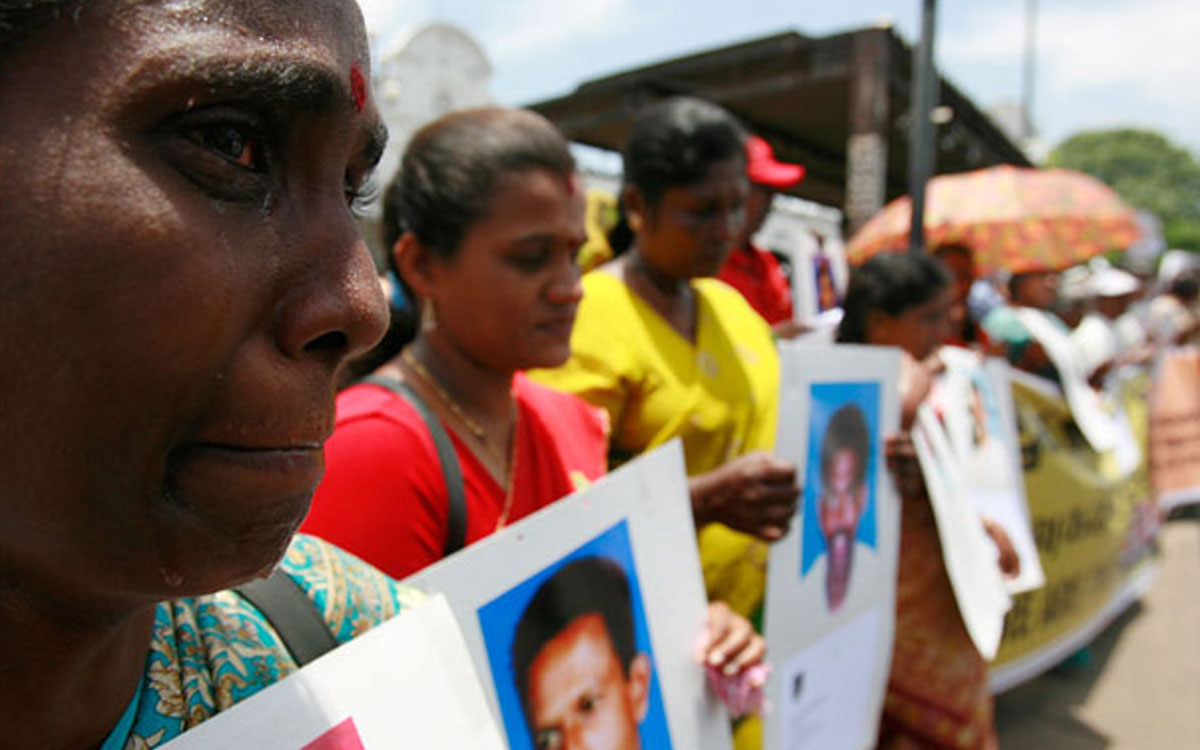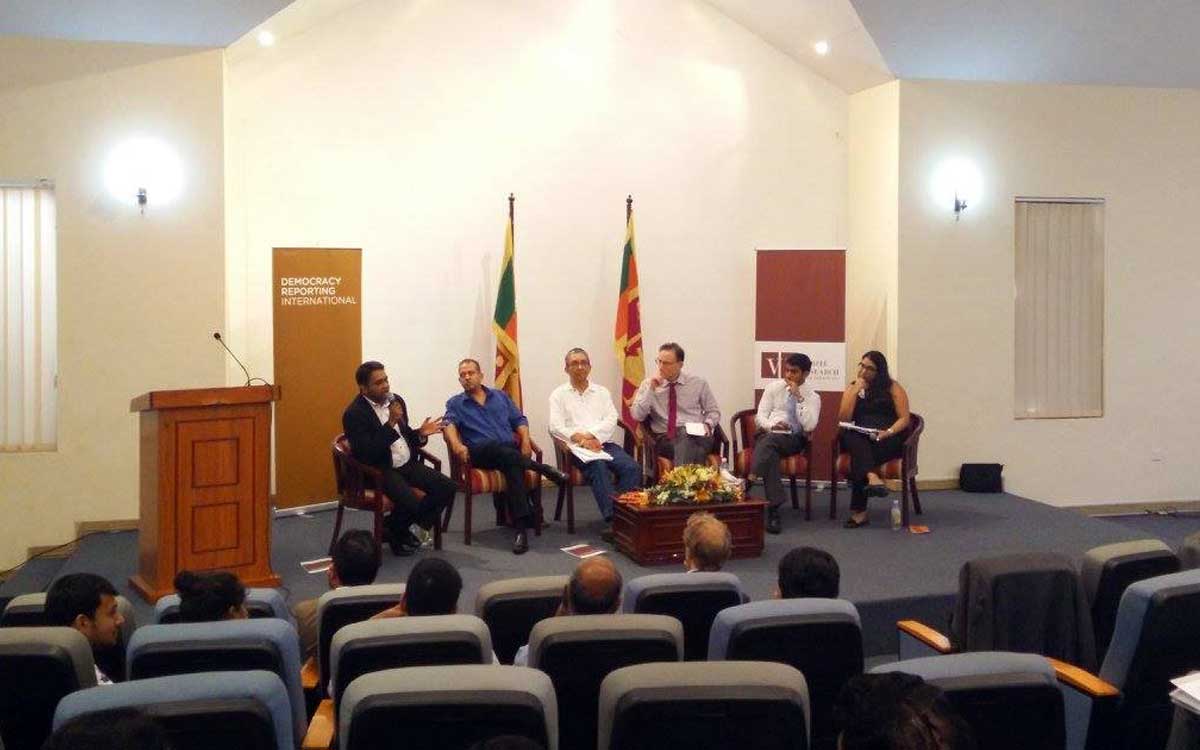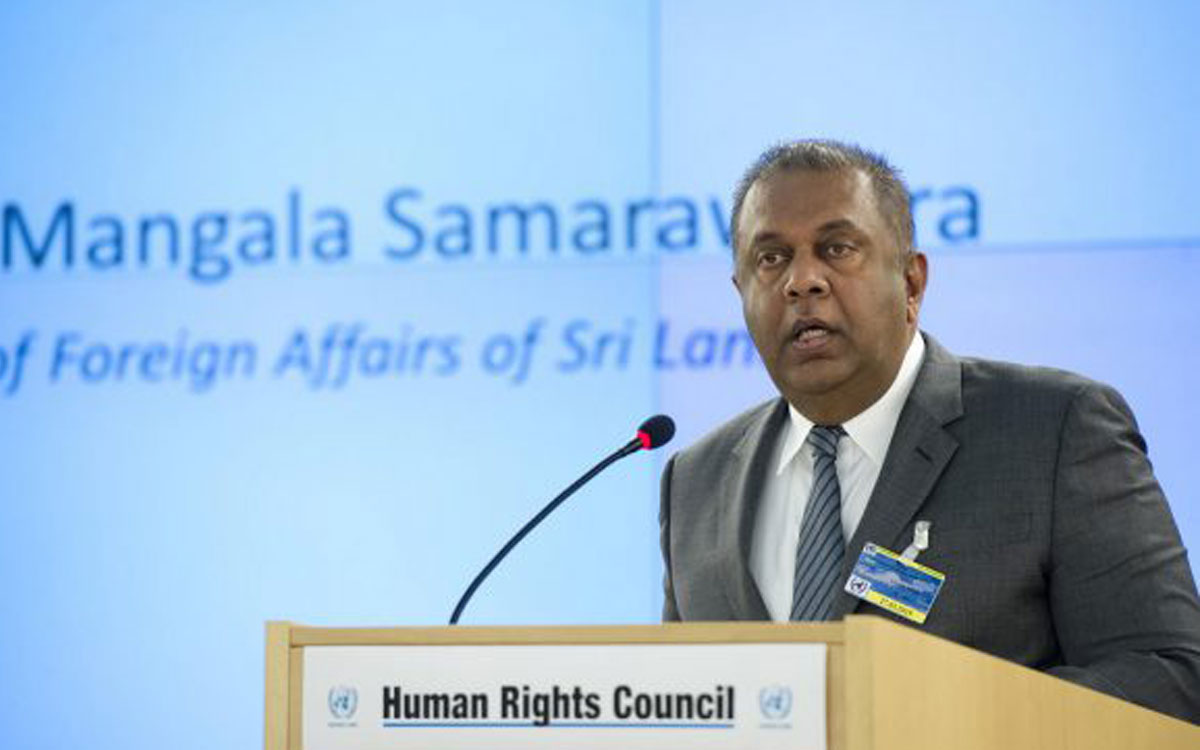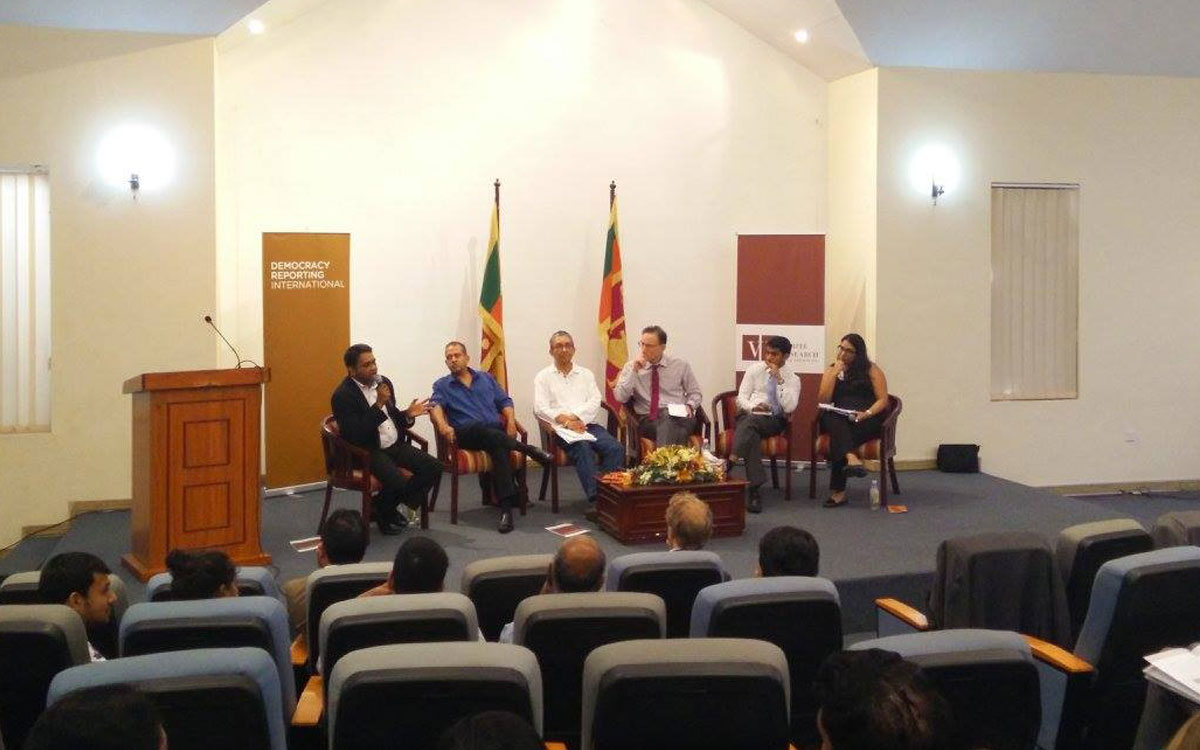Implications for Office on Missing Persons from Presidential powers: Verite
Sri Lanka’s nineteenth amendment (19A) to the constitution which placed limitations on the powers of the President have implications on the operation of the Office on Missing Persons (OMP), a research report showed. Research conducted by the head of legal...
continue readingResearch Director Subhashini Abeysighe on facilitating Trademark Registration in Sri Lanka – LMD Biz Talk
Subhashini Abeysinghe, Research Director of Verite Research shares insights into facilitating the registration of trademarks and the Madrid Protocol.
continue readingChanges to Electronic Transactions Act Soon
Amendments to the Electronic Transactions Act of 2006 that are to be gazetted shortly will boost online as well as cross-border trade by providing greater clarity for e-commerce, according to Director and Legal Advisor at the Information and Communication Technology...
continue readingAdvancing access to information and open government in Sri Lanka
In February 2017, Sri Lanka’s Right to Information (RTI) Act entered into force. The inclusive process through which the Act was crafted represents an exemplar of law-making in Sri Lanka, while the law itself constitutes a leading example of access to information...
continue readingVidya Nathaniel on the Indo-Lanka Free Trade Agreement – LMD Biz Talk
Vidya Nathaniel, Economics Team Leader of Verite Research shares some views on the Indo Lanka Free Trade Agreement
continue readingWhat Mangala Said (And Didn’t Say) At The UNHRC
Last week, during the 34th session of the United Nations Human Rights Council (UNHRC), and a full 17 months since Sri Lanka’s co-signing of Resolution 30/1, Foreign Minister Mangala Samaraweera delivered a speech at a high-level segment in Geneva. Kicking off on an...
continue readingRemove Obstacles to agricultural exports
Excessive checks, delays and unwanted procedures serious drawback to export growth West Asia is a potentially large market for our agri-products, but Lanka losing competitiveness The sluggish export performance of recent years has been one of the main reasons for...
continue readingRight to Information: Discourse and Compliance in Sri Lanka
Right to Information: Discourse and Compliance Verité Research, together with Democracy Reporting International (DRI) launched a paper titled ‘Right to Information: Discourse and Compliance’, on the 27th of February at the Lakshman Kadirgamar Institute. The paper presented practical recommendations for...
continue readingCall to change existing Sri Lanka laws to better apply RTI
Proactive disclosure is a key obligation of the Sri Lankan government under its new Right to Information (RTI) law and existing laws preventing publication of information from public authorities should be changed, a new study said. The study by the...
continue readingSearch
CATEGORIES
ARCHIVE
- February 2024 1
- January 2024 1
- October 2022 1
- August 2022 1
- June 2022 1
- January 2022 17
- December 2021 16
- November 2021 15
- October 2021 17
- September 2021 15
- August 2021 22
- July 2021 7
- June 2021 7
- May 2021 4
- April 2021 3
- March 2021 9
- February 2021 2
- January 2021 1
- November 2020 2
- October 2020 7
- September 2020 6
- July 2020 8
- June 2020 5
- May 2020 2
- April 2020 4
- March 2020 7
- February 2020 5
- January 2020 1
- November 2019 1
- October 2019 4
- September 2019 4
- August 2019 2
- July 2019 4
- June 2019 8
- May 2019 1
- April 2019 7
- March 2019 16
- February 2019 6
- January 2019 5
- December 2018 2
- November 2018 1
- October 2018 21
- September 2018 10
- August 2018 10
- July 2018 15
- June 2018 1
- May 2018 14
- April 2018 16
- March 2018 6
- February 2018 25
- January 2018 32
- December 2017 3
- November 2017 11
- October 2017 24
- September 2017 4
- August 2017 1
- July 2017 12
- June 2017 3
- May 2017 9
- April 2017 2
- March 2017 6
- February 2017 4
- January 2017 8
- December 2016 1
- November 2016 1
- July 2016 1
- May 2016 1
- May 2013 1






